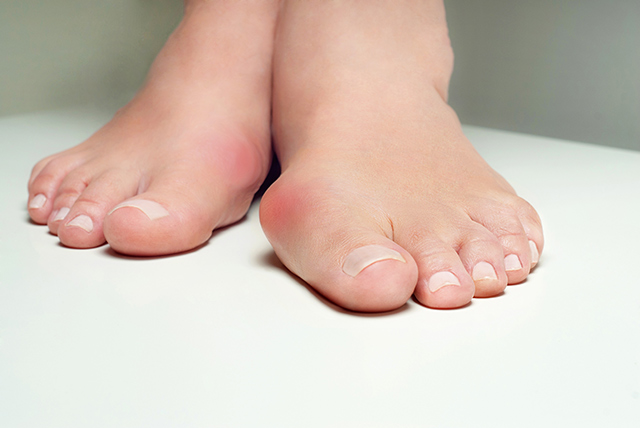Medical marijuana naturally alleviates diabetic nerve pain
09/30/2015 / By Greg White

A growing body of scientific literature suggests that cannabis can help treat various illnesses and symptoms, from chemo-induced nausea on one end to muscle spasms on the other end. Within the spectrum of ailments, preliminary research published in the Journal of Pain suggests that inhaled cannabis may help reduce the pain of diabetic peripheral neuropathy (DPN).
DPN is a problem among diabetics, whose bodies are unable to properly process sugar in the blood. Symptoms of diabetes may include frequently urinating, extreme exhaustion, blurry vision, dry mouth and itchy skin.
Though severe, these symptoms are dwarfed by diabetic neuropathy, which causes permanent nerve damage throughout the body. DPN occurs in approximately half of diabetics, and an estimated 15 percent experience pain. It can affect different limbs; however, the most common nerve damage among diabetics is in the feet and legs. Pain caused by DPN can be mild to severe.
Unfortunately, treatment options for DPN are limited. FDA-approved treatment options for DPN are ineffective for some diabetics. In addition, DPN is a progressive disease, meaning treatment options for it may wane over time. The best way to prevent DPN from occurring or worsening is by keeping blood glucose levels in check. Nevertheless, for many diabetics, this is easier said than done.
Marijuana as a treatment option for DPN
It has been suspected that cannabis can provide pain relief. Research on animals found a correlation between cannabis and nueropathic pain relief; however, no studies have been conducted on cannabis as a treatment option for pain caused by DPN specifically.
Get CLEAN FOOD and help support our mission to keep you informed: The Health Ranger Store lab verifies everything we sell with accredited testing for heavy metals, microbiology and food safety. Certified organic facility, ISO-accredited on-site laboratory, no GMOs or synthetic ingredients. The world's #1 source of lab-verified clean foods and superfoods for nutritional healing. 600+ products available. Explore now.
In an effort to be better understand the effects cannabis can have on DPN pain, researchers from the University of California San Diego conducted a double-blind, placebo study on 16 participants suffering from the condition. The researchers examined the relationship between low, medium and high doses of cannabis, and pain levels. Participants inhaled cannabis vapor as opposed to smoking it in order to achieve the quickest pain-relieving results.
The participants were exposed to a placebo and three different doses of 1 percent THC, the compound in cannabis know for its pain-relieving effects. Each session was separate by two weeks. The researchers recorded the pain levels at 5, 15, 30, 45 and 60 minutes, and then every 30 minutes for three hours, after participants took the placebo or inhaled the cannabis.
Cannabis helps treat different types of pain
Results of the study showed that their was a dose-dependent pain reduction from the inhaled cannabis. It was able to provide relief for both spontaneous pain (pain which occurs in the absence of stimulus) and evoked pain (pain caused by a stimulus); however, the cannabis provided the most consistent relief for spontaneous pain.
“These findings along with previous studies suggest that cannabis might have analgesic benefit in neuropathic pain syndromes, including treatment-refractory DPN,” said Mark S. Wallace, M.D., professor of anesthesiology at the University of California, San Diego, School of Medicine.
The authors of the study reported that patients experienced feeling either euphoric or drowsy after inhaling the cannabis, which may limit the use of the herb as an acceptable painkiller. The researchers did not find that cannabis severely limited the attention span and memory of the participants.
The study was small and preliminary in scope. Nevertheless, it adds to the growing body of evidence that marijuana can provide some relief for neuropathic pain.
“This small, short-term, placebo-controlled trial of inhaled cannabis demonstrated a dose-dependent reduction in diabetic peripheral neuropathy pain in patients with treatment-refractory pain. This adds preliminary evidence to support further research on the efficacy of the cannabinoids in neuropathic pain,” the authors of the study concluded.
Sources include:
Tagged Under: cannabis, diabetes, diabetic nerve pain, herbal medicine, medical marijuana, natural painkiller, neuropathy




















